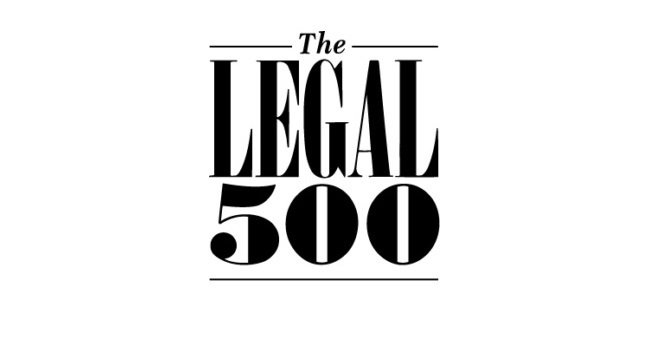News
10 minute read
Legal issues surrounding the corona crisis
-
Marc van Rijswijk
- attorney-at-law | partner
-
Bart Zandbergen
- attorney at law | partner

1. INTRODUCTION
The number of infections of the coronavirus increases each day. The outbreak of the virus has a substantial impact on trade and industry. The coronavirus causes uncertainties and legal issues that may affect you and your business.
In this memo we explain the following legal issues where the outbreak of the coronavirus may play a role:
- Fiscal and financial (Chapter 2);
- Force majeure and commercial contracts (Chapter 3);
- M&A (Chapter 4);
- Shareholders’ meetings (Chapter 5);
- Directors’ liability (Chapter 6);
- Bankruptcy (Chapter 7);
- Employment law (Chapter 8);
- Privacy (Chapter 9); and
- Civil proceedings (Chapter 10).
The lawyers of Stonewater are at your disposal for professional legal advice on various areas of expertise.
2. FISCAL AND FINANCIAL
In order to prevent businesses from being confronted with liquidity problems due to the coronavirus, the Dutch government presented a number of financial and fiscal measures to aid entrepreneurs in need.
One of these measures is the possibility to apply more easily for tax deferral for the payment of wage tax, value added tax, income tax and corporate income tax if you can substantiate that your company ran into that liquidity problems are a result of the coronavirus.
Another measure is the reduction of an earlier imposed provisional corporate income tax assessment in case you are expecting a lower taxable profit. You can apply for such reduction by submitting a written request to the Tax Authorities.
A third measure is the extension of the Guarantee Scheme for Entrepreneurial Financing. The Dutch State guarantees the repayment of loans provided to small and medium sizes businesses, as a result of which it is easier for entrepreneurs to attract (increased) debt financing. The introduced extension increases the current State guarantee from 50% of such loan to 75% thereof. Moreover, the State guarantee shall become applicable to bridge loans and overdraft facilities with a maximum term of 2 years as well.
3. FORCE MAJEURE AND COMMERCIAL CONTRACTS
The question whether any party may successfully invoke force majeure is relevant to the question whether a contract still has to be performed and whether performance of such contract can still be enforced. A related question is whether the contracting parties still have other obligations towards each other, such as the obligation to alternative performance and/or the compensation of damages.
Many contracts include a force majeure provision. Such provision may stipulate that for example strikes, material shortages, natural disasters and governmental measures qualify as a force majeure. The exact and literal terms of such force majeure clause are very important. A force majeure is quite easily deemed to be applicable if such clause contains a general phrase as ‘or any other event reasonably beyond the control of the breaching party’. An invocation of force majeure based on governmental measures is possible if such governmental measures are part of the definition of force majeure and the breach is indeed based thereon and not on other (virus or non-virus related) events or circumstances. It is unclear whether the current pandemic can be considered as a natural disaster. This is probably not the case. And many force majeure clauses lack a stipulation relating to shortage of material.
If no (or no adequate) force majeure clause is included in the contract, the law applicable to the contract can be relied on. Often a choice of law has been made in the contract. If such choice of law is absent, the following main rules apply: the residence of the consumer, the location of the real estate or otherwise the habitual place of business of the seller, service provider or distributor. If Dutch law is applicable, a force majeure exists when a breach in the performance cannot be attributed to the non-performing party. The impediment needs to be so severe that performance is no longer possible and no alternatives for performance exists. The specific circumstances of the case determine whether a force majeure in fact exists (art. 6:75 DCC). Unforeseen circumstances may play a role as well. These are circumstances that were unknown at the time the contract was entered into and which are of such a nature, according to the standards of reasonableness and fairness, that an unaltered continuation of the contract cannot be expected (art. 6:258 DCC). The threshold for derogation of the contract due to unforeseen circumstances is high. Whether the coronavirus qualifies as an unforeseen circumstance depends on the specific circumstances of the case. The question whether an invocation of force majeure as a result of the virus will succeed, therefore largely depends on the specific situation of the case at hand. The answer to this question differs from case to case.
In the event of a temporary or permanent force majeure, performance of the contract cannot be enforced, except by means of execution or settlement. In general, force majeure does not lead to an obligation for compensation of damages by the party who cannot fulfil its obligations, unless the debtor obtains an advantage he would not have had in case of performance of the contract (art. 6:78 DCC). Such advantages are for instance costs savings. If the debtor obtained such advantage, the creditor is entitled to compensation of damages up to the amount of such advantage. Furthermore, compensation of damages can never exceed the damages suffered by the creditor. Moreover, the creditor is only entitled to compensation of damages as far as this is reasonable. Such compensation of damages is for example unreasonable when the debtor, due to circumstances not attributable to him, uses the goods to be delivered whereby as a result of such use the relevant goods decrease in value while the debtor did not want to benefit from such use if he knew he had to pay for such use.
In the event one of the parties fails to fulfil its obligation, the other party is entitled to suspend its counter-performance (art. 6:262 DCC). The party obliged to perform first is entitled to suspend its performance if, on the basis of information received after the date of the agreement, he has a good reasons to fear the other party will not fulfil its counter-obligations (art. 6:263 DCC). Any breach by a party, except for example in case of a minor breach, entitles the other party to dissolve the agreement. However, the non-performing party must first be offered a grace period to remedy its breach, unless the breach is temporarily or permanently impossible. Both the notice of a grace period as well as the notice of dissolution can be given to the other party in writing. However, in case of disagreement, the party who wants the other party to deliver or pay or otherwise perform under the contract will have to initiate proceedings. In case of a dissolution, the agreement needs to be reversed and both parties are obliged to undo all acts performed under the contract. In the event of a non-delivered product, any purchase price payed must, in principle, be refunded by the seller. However, in the case of an undelivered service it is not always possible to reverse a performed obligation, especially if it is time-bound. In that event, in principle, payment still needs to be made, although advantages to the debtor (such as costs savings) can be deducted.
4. M&A
In the preliminary phase of a transaction, negotiations take place between the parties. The coronavirus may induce one of the parties to prematurely terminate such negotiations. Term sheets often contain a clause that such term sheet is non-binding. This usually means that any party can terminate the negotiations at will, but such is not always the case. The applicable law to such terminated negotiations is the law that would apply to the agreement if it had been concluded. In principle, under Dutch law, both parties are allowed to terminate the negotiations, unless this would be unacceptable based on the legitimate confidence of the other party in the conclusion of the agreement or based on other circumstances of the case. Account should be taken of the extent to and the manner in which a party terminates the negotiations. Unforeseen circumstances may play a role once again.
Whether the influence of the coronavirus justifies early termination of negotiations depends on the specific circumstances of the case at hand. If the term sheet determines that such term sheet is non-binding, according to Dutch law the intention of the parties and their reasonable mutual expectations from each other are decisive for the interpretation of such ‘non-binding’ clause. This illustrates that non-binding not always means entitlement to terminate at will, even more so if the other party has incurred considerable costs or has cancelled alternatives in favour of the anticipated deal. Besides this, term sheets often contain conditions precedent for entering into the sale and purchase agreement, for instance the positive outcome of a due diligence research and/or the internal approval from a certain corporate body. Usually, an intended purchaser may invoke such condition precedent to withdraw from the deal, most notably because financial forecasts will probably deviate substantially from previous assumptions for the deal. The purchaser may also decide to continue the deal only if the valuation will substantially be adjusted downwards, especially since the purchase price is often based on a multiple of the EBIDTA. However, if the purchase price is based on the 2019 EBITDA, it will prove to be more difficult to adjust the purchase price, as apparently financial forecasts for 2020 and future years have not played a role in determining such price. Consequently, the manner in which the purchase price has been determined, will play a major role.
It will usually be more difficult to try to evade the deal between signing (the entering into the sale and purchase agreement) and notarial closing (the actual legal transfer of the shares), especially since most relevant conditions precedent by then already have been fulfilled. In that case, the purchaser may only be able to invoke evasion due to an unforeseen circumstance, but the chance of a successful invocation seems to be quite limited. If the sale and purchase agreement contains a material adverse change clause, which allows the purchaser or each of the parties to cancel the deal, it is important to determine whether this clause contains further conditions.
The coronavirus may also affect all ongoing or finalized transactions. This could for instance include an effect on the purchase price mechanism. If parties have agreed on a closing accounts mechanism, the seller assumes the risk of any negative performance by the company in the period up to the notarial transfer of the shares. But also in case of a locked box method a reduced purchase price may arise if for example provisions have to be included in the 2019 annual accounts and these provisions have been defined as debt like items in the relevant transaction. Furthermore, in the case of leveraged buy-outs, the size of the bank finance can be reduced on the basis of the net debt/EBIDTA or DSCR covenants or, in case of real estate, the loan to value ratio. If the purchaser is obligated to acquire the company and the bank financing will be reduced in size or interest rates increase too much, this may lead to the purchaser having to pay up a larger amount than initially envisaged.
5. SHAREHOLDERS’ MEETING
Participation in a shareholders’ meeting by means of electronical communication is possible, provided that this is explicitly laid down in the articles of association (art. 2:227a DCC). A few requirements however apply. The convocation notice of the shareholders’ meeting must indicate that electronical means of communication will be used. Furthermore, the digitally present shareholders have to be identified and they have to be able to participate directly (live) in the meeting. Consequently, a shareholders’ meeting may take place through a conference call or Skype connection.
Without this provision in the articles of association, a shareholders’ meeting by means electronical communication is formally not possible, although most companies will allow this anyway. An alternative is that shareholders unable to attend the shareholders’ meeting will send a power of attorney by e-mail or mail.
Additionally, decision-making may take place outside of the shareholders’ meeting, provided that all persons entitled to attend the meeting agreed to this manner of decision-making. Usually this manner of decision-making is included in a company’s articles of association. In principle, the same majority requirements are applicable as in regular shareholders’ meetings.
6. DIRECTORS’ LIABILITY
Directors of a company can, in principle, only be held liable for improper management in the event of a grave personal blame attributable to them. The threshold to successfully invoke directors’ liability is high. Briefly stated, a director can only be held liable for any act or omission that no other reasonable acting director would not have done. Taking into account the current uncertain and unpredictable circumstances due to the coronavirus, a director is not likely to be held liable for any improper management. Within the context of the coronavirus, the responsibility of a director could however imply the obligation of taking precautions in the interest of the company and thereby guaranteeing the continuity of the company. A relevant factor is whether and to what extent a director is able to take such precautions given the extreme economic developments and governmental measures in many countries. If the coronavirus causes severe liquidity problems for the company that may lead to bankruptcy, it is important that directors are extra careful in making payments and entering into new obligations. In case directors decide to continue with the business of the company, a reasonable and feasible rescue plan is required.
7. BANKRUPTCY
The coronavirus will most likely lead to a substantial number of bankruptcies, especially considering the domino effect for unpaid suppliers and unsupplied customers. Traditionally, the Dutch bankruptcy law is based less on restart options than in, for instance, Anglo-Saxon countries. As a result, a creditor can in general not be forced to accept an arrangement scheme. The legislative proposal Approval Private Scheme of Arrangements (wetsvoorstel homologatie onderhandse akkoord), currently awaiting adoption by the Dutch legislative bodies, will enable forced arrangements more easily. Bankruptcy practitioners and experts urge to accelerate the adoption of this law (whether or not as an emergency law).
Nevertheless, with sound advice and guidance, a restart or other possibilities may be utilized and/or liabilities or other harm may be prevent. Creditors could increase their possibilities for liability claims or compensation of damages by sound advice and guidance as well.
8. EMPLOYMENT
The employer is obligated to continue to pay wages of sick or ill employees (due to the coronavirus or otherwise) (art. 7:628 BW and art. 7:629 DCC). This is no different if an employee stays at home by order or advice of the National Institute for Public Health and the Environment (RIVM). Furthermore, the employer has a duty of care, which entails that it has to ensure the safety and health of his employees. In the context of the coronavirus, this duty of care implies that the employer is obligated to take measures to prevent employees from incurring damages in their course of duties, including taking hygiene precautions in order to prevent distribution of the virus and to the extent possible enabling employees to work from home. The exact scope of this duty of care however differs per industry or business (art. 7:658 DCC).
If you as an entrepreneur expect a temporary decrease in turnover of at least 20% you can, as from 1 March 2020, apply to the Ministry of Social Affairs and Employment for an allowance in the wage costs of up to 90% of these labour costs. As soon as the relevant permit has been granted, the Employment Insurance Agency will provide an advance payment of 80% of the requested allowance for a maximum period of three months. A condition however is that no employee will be dismissed for economic or commercial reasons during this period.
9. PRIVACY
Regarding to the privacy of an employee, the employer is not allowed to document any personal data other than on a need-to-know basis, for example information to judge whether wages should be paid. In principle, the employer is not permitted to assume the role of a doctor by drawing certain conclusions about the employee, for instance by measuring his body temperature. However, in respect of the coronavirus the restrictions for the employer regarding the privacy of the employees depend on the specific circumstances of the case. The importance of the health and safety of the other employees may prevail over the employee’s privacy. This could justify the employer documenting more specific information about employees in order to prevent the virus from spreading.
10. CIVIL PROCEEDINGS
Statutory periods for initiating new proceedings, appeal proceedings, Supreme Court proceedings and retrial proceedings do not change due to the coronavirus. Procedural documents in ongoing proceedings will continue to take place, although cases will be postponed for the usual period (usually 4 or 6 weeks) in case no documents have been received by the court.
For the time being, court meetings only take place in the event of the ‘super-urgency’. This means that most summary proceedings, preliminary relief proceedings and preliminary injunctions as well as hearings for attachment requests will temporarily not take place. Oppositely, bankruptcy hearings will in principle continue to be held. Court meetings take place as much as possible by means of videoconference or telephone.
In appeal proceedings also hearings will only take place in urgent situations (urgent preliminary relief proceedings and bankruptcy hearings) and as much as possible by telephone.
*****






